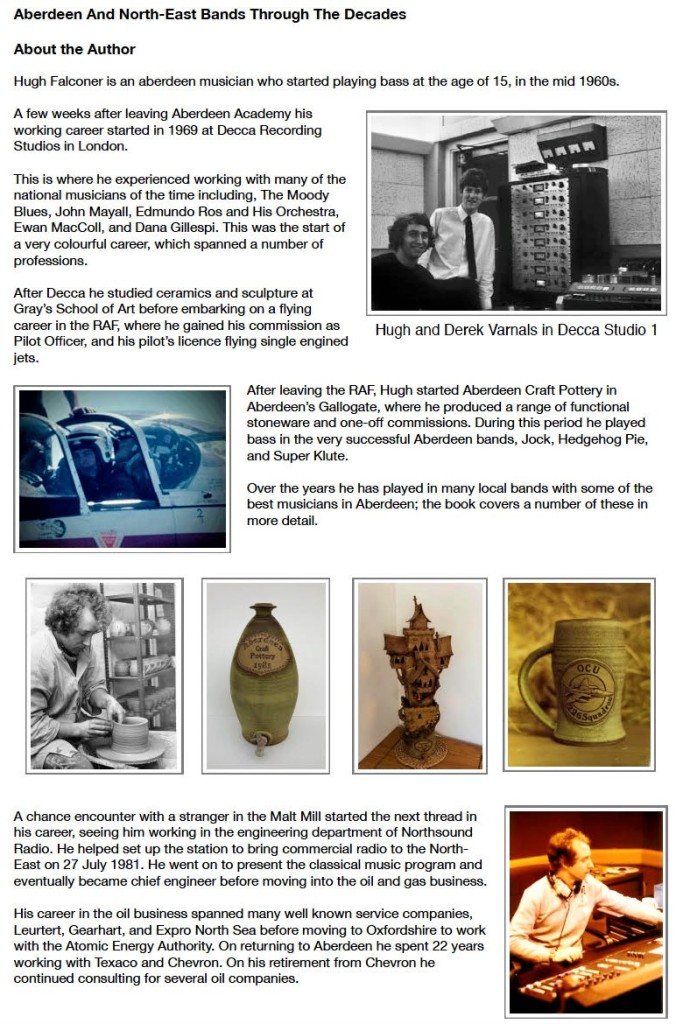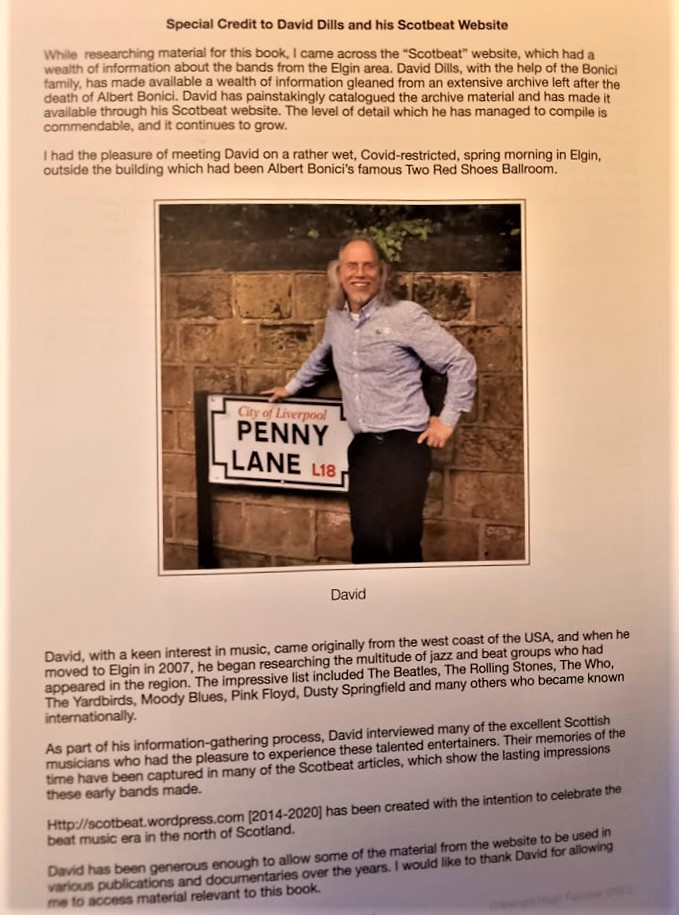When I began researching the early beat music scene in north-east Scotland, Fit Like New York and Blue Suede Brogans were the only publications covering the subject matter. It was a drawn out process gathering and recording information and images related to the music scene for Scotbeat but rewarding. Several have since contacted me over in furthering their own research including Aberdeen musician/writer Hugh Falconer.
Having read Hugh’s new book, Aberdeen And North-East Bands Through The Decades, I am pleased to announce the new publication, full of formerly unpublished images of Scottish pop bands with interesting notes about their perspective careers. The book also gives an insight about the behind the scenes aspects with an overview of the promoters who offered employment and encouragement.
Although it wasn’t easy to gain access to the London recording industry in mid-twentieth century, especially for those working outside the hub, dozens of young Scottish musicians gained steady employment touring Scotland as support bands. Local promoters offered the musicians a small income while developing unique styles of music and in some cases, in composing their own tunes. Upon request, Hugh put together this brief overview, highlighting his working career as a musician and artist, besides his work in commercial radio.

Notes gleaned from Hugh Falconer memoirs:
Inspired by friend Robbie Benzies who transitioned from Aberdeen to
London in 1968, Hugh decided to pursue a career in the music industry in
London. He had been playing in bands around north-east Scotland while
Robbie was working at a Musical equipment company and doing gigs with
London band, The Storm. Another friend, John Burns had given up a DJ
slot at Aberdeen’s Beach Ballroom and moved to London to work as an
assistant recording engineer and Hugh was looking for his opening.
“Late in 1968, we had a visit from my father’s cousin Robert Small and his
daughter Sandra, who lived in Streatham in London. After a chat with them,
they offered me the possibility of a short-term place to stay if I went looking
for work in London.” This led to employment as a Tape Machine Operator
at Decca Record Co at West Hamstead Recording Studios [Broadhurst
Gardens] after receiving a telegram from John Burns about a job interview.
“With the invaluable help of John, I had managed to secure my first-ever
real job, so within two weeks of arriving in London, I had a place to live and
a job!” “John, who he knew from their time doing gigs in Scotland, showed
Hugh around the studios besides introducing him to others in the business
and the studios canteen where he frequented.
The recording studios had already produced recordings for several
musicians who became internationally successful and during Hugh’s time in
London, he had the opportunity to work on some exciting projects. Hugh
worked on tracks for the Bluesbreakers featuring John Mayall and Eric
Clapton besides one of my favourite bands, The Moody Blues when
producing “To Our Childrens Childrens Children”
https://www.youtube.com/watch?v=5j0y71bx2K8 [May and July 1969].
In 1972, his friend, John Burns, was recognized for the best recorded single
of the year, “Hallelujah Freedom” by Junior Campbell. Hugh Falconer
remembers his experiences with Decca Records fondly though it was short
lived. In August 1969, he was offered the opportunity to pursue a four year
course at Gray’s School of Art in Aberdeen which meant giving up his job in London.
Hugh graduated from art college in 1975, after having taken time out to serve
as a pilot in the Royal Air Force.
Used with permission: Copyright Hugh Falconer [notes from personal memoirs]



Brought back lots of memories for me seeing musicians i knew and played with. Back then, D.J’s were simply guys with big record collections who played between bands while everyone went to the bar! I remember a lot of changes between personnel – you would see the same guys playing in different bands continously. No big money involved , just for the love of it. Hugh has done a lot of research here and i’m sure band members will enjoy reading it.